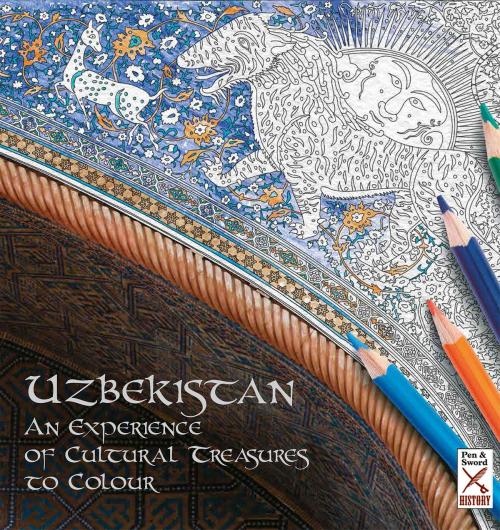Uzbekistan
An Experience of Cultural Treasures to Colour
Nonfiction, History, Asian, Asia, Art & Architecture, Architecture| Author: | Lola Karimova-Tillyaeva | ISBN: | 9781526750204 |
| Publisher: | Pen and Sword | Publication: | January 31, 2019 |
| Imprint: | Pen and Sword History | Language: | English |
| Author: | Lola Karimova-Tillyaeva |
| ISBN: | 9781526750204 |
| Publisher: | Pen and Sword |
| Publication: | January 31, 2019 |
| Imprint: | Pen and Sword History |
| Language: | English |
From the blue and gold splendors of Samarkand to the holy city of Bukhara, the architectural heritage of Uzbekistan is simply extraordinary.
Over the 2,000 year history of the Silk Road, its fertile oases have attracted countless travelers and conquerors who have profoundly made their mark on human history, such as the conqueror Tamerlane or the scientist Ulugh Beg, who discovered the sundial. All have bequeathed an inheritance whose legacy can still be admired today.
By its geographical position, Ancient Uzbekistan was created from a melting pot of different cultures. Iran, the Eastern Steppes, Siberia, India and China have all added their own influences on the local arts. Over the centuries, due in many parts to the Silk Road, these exchanges have continued to grow. Cities such as Samarkand, Bukhara, Tashkent and Khiva became famous in the Middle Ages not only for their cultural wealth, but also for science.
In homage to this rich heritage, this book is a celebration of the arts and pictorial traditions of Uzbekistan. Photographs of architectural works, murals, ceramics, tapestries and ornamented textiles highlight the country's cultural treasures, accompanied by short texts explaining their historical significance. On the right-hand page, the reader is given the opportunity to color in their own drawings based on the beautiful photographs provided.
From the blue and gold splendors of Samarkand to the holy city of Bukhara, the architectural heritage of Uzbekistan is simply extraordinary.
Over the 2,000 year history of the Silk Road, its fertile oases have attracted countless travelers and conquerors who have profoundly made their mark on human history, such as the conqueror Tamerlane or the scientist Ulugh Beg, who discovered the sundial. All have bequeathed an inheritance whose legacy can still be admired today.
By its geographical position, Ancient Uzbekistan was created from a melting pot of different cultures. Iran, the Eastern Steppes, Siberia, India and China have all added their own influences on the local arts. Over the centuries, due in many parts to the Silk Road, these exchanges have continued to grow. Cities such as Samarkand, Bukhara, Tashkent and Khiva became famous in the Middle Ages not only for their cultural wealth, but also for science.
In homage to this rich heritage, this book is a celebration of the arts and pictorial traditions of Uzbekistan. Photographs of architectural works, murals, ceramics, tapestries and ornamented textiles highlight the country's cultural treasures, accompanied by short texts explaining their historical significance. On the right-hand page, the reader is given the opportunity to color in their own drawings based on the beautiful photographs provided.















